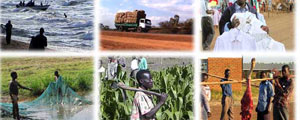
FIXING an ailing economy such as ours is always going to be a challenge for our politicians.
BY TAPIWA GOMO
This is not because it is not achievable. It just does not sit well with the vested and competing political and personal interests among the leadership. We have read tonnes of economic recovery blueprints and more will come and the economy will not grow because the stakes are higher in these interests and have more control over matters of national interest such as economic growth.
Our history shows that we do not lack ideas to revive the economy, neither do we lack the resources nor are we incapable of rising again. The biggest challenge has been lack of commitment and political will by those in power to prioritise the country. The day they wake up to that realisation, it will take less than half a decade before our economy starts growing.
An example to illustrate this lack of commitment is found in what is termed fight against corruption. For starters, in a normal environment, corruption cannot happen without the blessing or involvement of those in power. And this explains why the media and police can uncover many high profile corruption cases and yet no one is jailed, neither does corruption end nor those in power condemn it when it is highlighted.
The little we hear about zero tolerance to corruption is nothing but political expedience. It is what is politically right to say — they do not mean it because if they did either their lives or those of the corrupt would be in danger. Going by the adage, “the ruling party cannot reform itself out of power”, the same way those in power cannot stamp out corruption as doing so is tantamount to kicking themselves out of power. Corruption is their lifeline — it is why they are there.
That intricate symbiotic relationship between political power and corruption does a lot of damage for prospects of economic recovery and democracy. This is because it is the corrupt cartels — which are not elected into power — which tend to control government policy in order to protect their interests. And in many cases, the political leadership tends to depend on resources from the cartels in order to secure their next mandate, a situation which sees the elected officials handing over policy-making powers to the cartels.
These relationships are common everywhere, including in thriving democracies but major differences lie in that in other countries it is the markets or those who control the formal economy who attempt to sway political dynamics in their favour. But this is done in a regulated manner and in a context that preserves national interests.
- Chamisa under fire over US$120K donation
- Mavhunga puts DeMbare into Chibuku quarterfinals
- Pension funds bet on Cabora Bassa oilfields
- Councils defy govt fire tender directive
Keep Reading
In Africa in general, the corrupt cartels are not regulated and their behaviour is both corrosive and extractive as they have unhindered access to national resources and siphon them outside country — a scenario that undermines the very notion of national interest. Because the national leadership is captured by these non-productive cartels, elected leadership is unable to call them to order as doing so is detrimental to their own political careers.
If that were not the case, our country would have made major economic strides from the sale of diamonds and other minerals and some of our politicians would be among the richest in Africa. The state of national poverty and the dwindling financial resources which have rendered the government incapable of meeting the civil servants wage bill demonstrates an appalling level of hopelessness and yet the leaders are quick to announce that the 2023 elections are done and dusted.
There is everything wrong in the thinking that even when there is glaring evidence of failure to lead and to deliver over the last four decades, they still see themselves contesting the next election amid growing poverty under their watch. That mentality is where our national problem lies. It is an abnormal mentality and sadly the people continue to prescribe democratic processes to cure it even when it has long demonstrated resistance to the electoral processes.
It is not just a matter of democracy giving them the right to contest in elections, neither the human decency to realise that they are the authors of the nation’s ever increasing poverty, nor the remorse to let the country and its people move on without them, it has become scandalous and has reached a certain level of insanity that beats optimal levels of basic human logic.
How do people go to bed knowing that they are the causers of the suffering of millions of people who go without access to essential services and civil servants earning meagre salaries?
It is even more sobering knowing that the suffering is not natural but a result of national resources that have been looted and stocked elsewhere outside the country inaccessible for use by our people — their own relatives and neighbours — but used by those countries to better the welfare of their people.
Where is the logic in keeping the neighbour’s family well fed while you own suffers? What is the point in starving your people, oppressing them in order to steal more just to save in another country. Those resources are part of what makes those economies grow and create employment for their people while here our people are fed with lies about sanctions. Sadly, this is how our politicians think. There is some truth in the saying that “we hate ourselves” and this behaviour exemplifies it.











